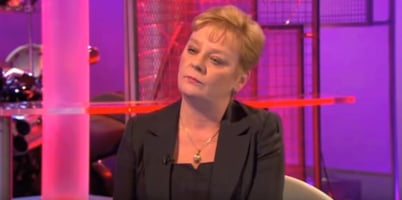Observing one of our recent media training courses, I saw an interview I hadn’t seen before.
Plenty has been said and written about Prince Andrew’s now-infamous interview.
And if you saw our media training blog earlier this week, you’ll know that we have had our say.
But one question that doesn’t really seem to have been addressed in all the reams of coverage is whether the Duke of York should have agreed to the interview in the first place.
You can understand why he wanted to do it and why he seemingly went against the advice of his PR advisors in doing so.
But was a 45-minute interview ever really going to end the speculation, successfully counter allegations and change the narrative on this particular story?
As a company that delivers media training and crisis communication, we naturally normally recommend that interview bids are accepted and tell our delegates that they present a great opportunity to get their side of a story across.
But that doesn’t mean we believe they should always be accepted.
The first thing to consider in this case is that the story surrounding the prince had been around for almost a decade.
While it was still grumbling around in the background, the story was not exactly dominating the news agenda before Saturday’s interview.
So, it is unlikely that turning down the interview at this stage would have been particularly damaging. In fact, negotiations about the interview had been taking place for a long time.
By agreeing to the interview – and then delivering a poor performance – the prince breathed fresh impetus into a story and put it at the centre of the news agenda. And, rather than put a lid on the story, raised more questions.
But, even if the prince had given a really strong crisis media management interview, would it have won over the watching public?
I’m not convinced it would – the prince is not regarded as a particularly popular member of the royal family after all.
The choice of broadcaster is also interesting.
If the Prince insisted on doing an interview, did it need to be with Newsnight? Let’s be honest, any news outlet would have carried the story, so agreeing to an interview with a programme which has a reputation of being challenging and hard-hitting was particularly risky.
What is clear is that before the interview was agreed, the prince should have had extensive and rigorous media training which tested whether his message and arguments really stood up.
In the social media age, it was inevitable that as soon as the prince said he couldn’t sweat or that he had never really been a party person, photographs would quickly circulate of him appearing to perspire heavily and be the centre of attention at parties.
#PrinceAndrew says:
— Nomia Iqbal 🐝 (@NomiaIqbal) November 16, 2019
- he doesn’t party
- he doesn’t sweat
- he is careful about when he takes public pictures
- he doesn’t remember meeting or having a photo with #VirginiaRoberts #maitlis #Newsnight pic.twitter.com/pVEBNSVJdD
Prince 'I-didn't-party-or-do-PDAs' Andrew is pictured doing plenty of both at wild parties on the French Riviera in 2007 (and he looks a wee bit sweaty too)
— Mike Cernovich (@Cernovich) November 18, 2019
https://t.co/s0UYNTeqkP
And equally inevitably, those pictures were then covered in the mainstream media. This would have been identified as a risk by good media trainers.
It has been reported that the prince’s PR advisor Jason Stein favoured a print interview as the best way to get the duke’s side of the story across.
And there is some merit to that suggestion. It probably would have given him more control and it is unlikely it would have resulted in the same level of ridicule he is currently experiencing.
There would have also been a natural hook with is 60th birthday coming up in February.
If that had gone well and the prince had shown himself able to deal with the more challenging questions in that format, then broadcast interviews could have been considered.
It might go against what we normally recommend on our media training courses, but this was an interview where there was always more to be lost than there was to be gained.
Media First are media and communications training specialists with over 30 years of experience. We have a team of trainers, each with decades of experience working as journalists, presenters, communications coaches and media trainers.
Click here to find out more about our practical crisis communication and media training.
Subscribe here to be among the first to receive our blogs.




